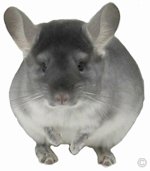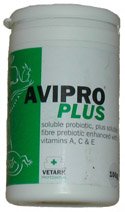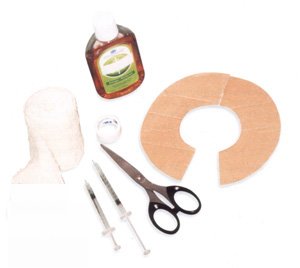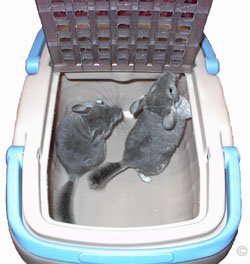
Chinchillas are generally robust little animals but sometimes health issues arise. Chinchillas are well known to hide health problems therefore it is vital chinchillas are kept under close observation and you get into a routine of examining and weighing a chinchilla weekly.
Attention should be given to any chinchilla that is losing weight or those whose fur appears dry, dull and has lost the sheen, luster, fluffiness of a normal 'healthy' chinchilla. Eyes must also be monitored as these are generally one of the first areas a chinchilla will expose any health issues.
The chinchilla's body temperature is of importance when examining for any health issues as the temperature of a normal chinchilla will range from 97°-100°F when taken from the rectum. A temperature that registers over 100°F indicates a chinchilla has a serious health issue and a thorough examination by a veterinary surgeon will need to be performed. A body temperature that is low or subnormal is also a serious health condition - temperatures below 95°F often indicate that a chinchilla has only a matter of time before death!
Chinchillas that have health issues appear dull, they are often reluctant to move about the cage and their eyes will lose that clear, bright, beady appearance as seen in a normal healthy chinchilla. Their behavior and posture are also quite different from those of a normal healthy chinchilla. Those that are severely affected with a health issue will appear indifferent to their surroundings or to any attention you provide, also they will have the same attitude towards their food and water that is offered to them. Chinchillas that display such profound symptoms are in a very serious condition and require immediate and effective treatment if they are to survive.
 To detect any health issues it is necessary to know the characteristic appearances of the bodily structures and fur of a normal healthy chinchilla, so that any changes or deviation from the normal appearances can be readily and quickly detected.
To detect any health issues it is necessary to know the characteristic appearances of the bodily structures and fur of a normal healthy chinchilla, so that any changes or deviation from the normal appearances can be readily and quickly detected.
The health of a chinchilla is paramount to its survival and longevity. A healthy chinchilla will live well beyond 10 years providing it has been blessed with good gene hereditary.
When a chinchilla's health is under threat it is paramount that you care for them quickly and in the proper manner. Chinchillas do not do well under stress, which can bring on further health issues that can cause secondary complications. Ensure your chinchilla is registered at an exotic veterinary surgery and that your surgeon has complete knowledge of a chinchillas.
 WARNING - Chinchillas are classed as exotic pets and therefore should be registered with an exotic veterinary surgeon. Chinchillas are not like rabbits, hamsters and other rodents and a veterinary surgeon must know the differences in anatomy. You should also only register with a veterinary surgeon if he/she can perform a dental checkup without the need for anesthetic and has chinchilla training and knowledge. Do not risk your chinchilla's welfare with the wrong vet, ask questions and if your vet is uneducated in the field of chinchillas, then either help educate him/her or find another veterinary surgeon!
WARNING - Chinchillas are classed as exotic pets and therefore should be registered with an exotic veterinary surgeon. Chinchillas are not like rabbits, hamsters and other rodents and a veterinary surgeon must know the differences in anatomy. You should also only register with a veterinary surgeon if he/she can perform a dental checkup without the need for anesthetic and has chinchilla training and knowledge. Do not risk your chinchilla's welfare with the wrong vet, ask questions and if your vet is uneducated in the field of chinchillas, then either help educate him/her or find another veterinary surgeon!
Some health issues are more common than others but all health issues will make a chinchilla go rapidly downhill if not treated correctly and effectively. The Chinchilla A-Z Health & Sickness Bible is an invaluable book for all chinchilla owners, listing over 150 different health illnesses and diseases a chinchilla can acquire and now due to popular demand is on its second edition! This amazing eBook provides prevention methods and a 'cure' if available and is laid out as an easy A-Z reference guide. This ebook is unique and like no other on the current market and will help you identify illnesses sooner making a cure more possible!

Caring For A Sick Chinchilla
Very occasionally a chinchilla will need extra care due to a health issue, this is not very often (providing you have supplied a healthy diet and regime) but when a health issue does arise, it is vital you take the correct care to ensure a speedy recovery.
 Always give a sick chinchilla plenty of peace and quiet within a dark, warm environment and keep a regular check on them.
Always give a sick chinchilla plenty of peace and quiet within a dark, warm environment and keep a regular check on them.
It is important that you provide a fresh supply of water, hay and pellets daily and cease any treats you have been offering.
A chinchilla's digestive tract will also be under strain during times of ill health therefore it is a good idea to add some probiotics in the form of Avipro Plus to the chinchilla's water to help keep the gut in good flora and prevent bad bacteria build-up.
Dustbath's may need to be suspended depending on the health issue the chinchilla is experiencing (conjunctivitis, respiratory infection etc) unless confirmed otherwise by your veterinary surgeon.
It is paramount the cage is kept clean during periods of ill health as a chinchilla's immune and resistance will be reduced and further infections can easily be acquired.
Always seek professional veterinary advise whenever you have any concerns over a chinchilla's health. DO NOT try and medicate a chinchilla yourself at any time and keep a constant vigil on the chinchilla until it has regain its optimum health.
 First Aid Kit For A Chinchilla
First Aid Kit For A Chinchilla
It is wise to keep a first aid kit to hand that is easily accessible during times of ill health and emergency. The chinchilla's first aid kit should include all the following items:
- Pipette or Droplet - to feed water through if your chinchilla needs it.
- Measuring Syringe - used to extract an exact amount of liquid medicine from a bottle. Can be double up as a hand feeding aid when using a liquid-feed substitute.
- Probiotics - such as (Vetark) Avipro Plus to add to a chinchilla's water system during times of stress, illness, diarrhoea/constipation, gastrointestinal problems and inconjunction with antibiotic use.
- Liquid Food (Vetark Critical Care) - use as a rehydration food replacement for chins that are unable to feed themselves or are refusing to eat.
- Saline Solution - a combination of sodium chloride or salt in sterile water for cuts, lacerations and cleaning wounds.
- Mild antiseptic
 - which can be used on children will be ok for chinchillas. Needed for cuts and lacerations and cleaning infections.
- which can be used on children will be ok for chinchillas. Needed for cuts and lacerations and cleaning infections.
- Absorbent Cotton - to administer ointments.
- Gauze (for sensitive skin) - used in conjunction with a collar to stop a chinchilla chewing the material and needed for cuts and lacerations or to prevent a chinchilla getting to a particular area.
- Sticky Tape - for gauze.
- Scissors - for cutting gauze.
- Collar - made up of two pieces of cardboard that are cut into semi circles that tape together around the chinchilla's neck. The inner hole must be big enough to not choke a chinchilla and is used to prevent chinchillas getting to a particular wound or infection.
- Traveling Box - necessary for trips to the vet and in emergency situations. A traveling box must be prepared for use at all times and include a soft inner surface for comfort.
When a chinchilla's health goes down hill it is important you know what to look out for and what to do! The following links relate to chinchilla health and is recommended as further reading:
Further Reading Relating To Chinchilla Health:
Chinchilla Anatomy, Chinchilla Care, Chinchilla Exercise, Examining A Chinchilla, Home Remedies And Safe Medications, Illness Sickness & Disease, Minerals And The Relation To Chinchilla Disease, Nutrition, Supplementation, Vitamins And The Relation To Chinchilla Disease.



 To detect any health issues it is necessary to know the characteristic appearances of the bodily structures and fur of a normal healthy chinchilla, so that any changes or deviation from the normal appearances can be readily and quickly detected.
To detect any health issues it is necessary to know the characteristic appearances of the bodily structures and fur of a normal healthy chinchilla, so that any changes or deviation from the normal appearances can be readily and quickly detected. WARNING - Chinchillas are classed as exotic pets and therefore should be registered with an exotic veterinary surgeon. Chinchillas are not like rabbits, hamsters and other rodents and a veterinary surgeon must know the differences in anatomy. You should also only register with a veterinary surgeon if he/she can perform a dental checkup without the need for anesthetic and has chinchilla training and knowledge. Do not risk your chinchilla's welfare with the wrong vet, ask questions and if your vet is uneducated in the field of chinchillas, then either help educate him/her or find another veterinary surgeon!
WARNING - Chinchillas are classed as exotic pets and therefore should be registered with an exotic veterinary surgeon. Chinchillas are not like rabbits, hamsters and other rodents and a veterinary surgeon must know the differences in anatomy. You should also only register with a veterinary surgeon if he/she can perform a dental checkup without the need for anesthetic and has chinchilla training and knowledge. Do not risk your chinchilla's welfare with the wrong vet, ask questions and if your vet is uneducated in the field of chinchillas, then either help educate him/her or find another veterinary surgeon!
 Always give a sick chinchilla plenty of peace and quiet within a dark, warm environment and keep a regular check on them.
Always give a sick chinchilla plenty of peace and quiet within a dark, warm environment and keep a regular check on them.
 - which can be used on children will be ok for chinchillas. Needed for cuts and lacerations and cleaning infections.
- which can be used on children will be ok for chinchillas. Needed for cuts and lacerations and cleaning infections.